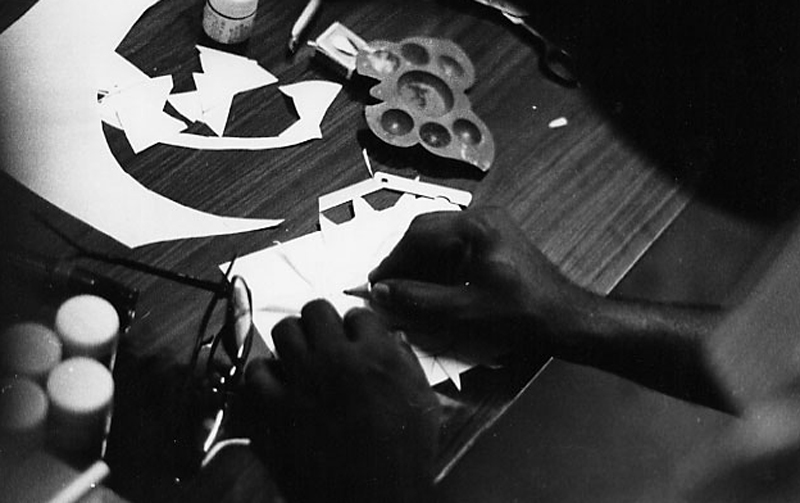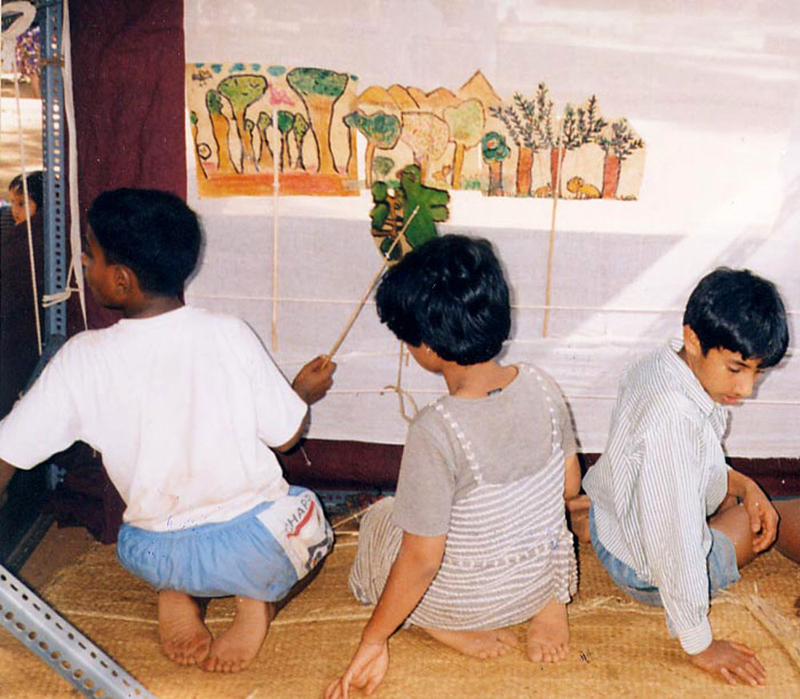Prakash Garud
Grant Period: Over one year
Our second grant to Prakash and his colleagues will enable them to tour extensively with the productions, while introducing shadow puppetry (with the help of traditional performers) through accompanying workshops for parent and school audiences in the state. Given the commitment and drive they amply displayed in the first round of the programme, there is little doubt that the tour will be hugely successful. In both performance and workshop situations, the group is exceptional, and even the shyest of children are left with no choice other than to succumb to their entertaining wiles. Moreover, the team has its eyes firmly fixed on the future and has already established a good reputation and support network for itself in the state. There is little likelihood, however, that the possibility of success will make the group any less open to artistic experience and learning
The project leader is originally from Gadag, and a member of a traditional theatre company founded by his grandfather. Currently settled in Dharwad with his spouse, Prakash and his collaborators have set up a non-profit organisation, Bala Balaga, with local support. Bala Balaga will manage a small school and a repertory that caters to children – and which will perform the three shadow puppetry plays. Similarly, a collaborator from Tiptur is involved with a theatre group, on whose governing body Prakash and others in the collaboration sit. Another member of the team in Shimoga, a visual artist, is looking to form a village arts centre on a part of the agricultural land she had inherited, and consults regularly with the larger group on this issue. Such professionalism and purpose reflects the culture of Ninasam, the theatre institution that trained the core of this team. If not working in their own towns, most collaborators will work at Ninasam on part-time projects, or with alumni who offer work. Our second grant, covering honoraria, will give the team the luxury to devote themselves more single-mindedly to the task at hand.
Bala Balaga is in the process of networking itself with innovative schools, and is collaborating closely with two such institutions in Bangalore. Teachers and students from one of the schools in Bangalore participated in a puppetry workshop at Dharwad and interacted with parents from Bala Balaga to discuss issues of pedagogy and learning. Parents of students at Bala Balaga recently visited the schools in Bangalore and spent a full day interacting with children at both the institutions. Bala Balaga’s intended repertory work with schools has the same engaging quality. A survey in the initial stages revealed, for instance, that not a single school in Karnataka arranges folk performances. Collaborators have already been in touch with schools in the state run by the Navodaya Vidyalaya Samiti (NVS), New Delhi, and have a long-term plan to do at least one of their productions in Hindi in order to travel to NVS schools elsewhere in the country.
Prakash and his colleagues have been in constant dialogue with traditional performers willing to interact with them. The group believes that traditional performers must plot and steer the change that may have to come about, if the form is to create new audiences and sustain itself as performance. With traditional performers forced in a sense to be curious bystanders, they may look into themselves. Prakash and his colleagues brought down the performance time to an hour or less and heightened the visual and narrative elements in ways that children would find compelling. If all goes according to plan in the second phase, the group does feel that some of the younger traditional shadow puppeteers may choose to collaborate further and introduce the form to younger audiences in a new way.




